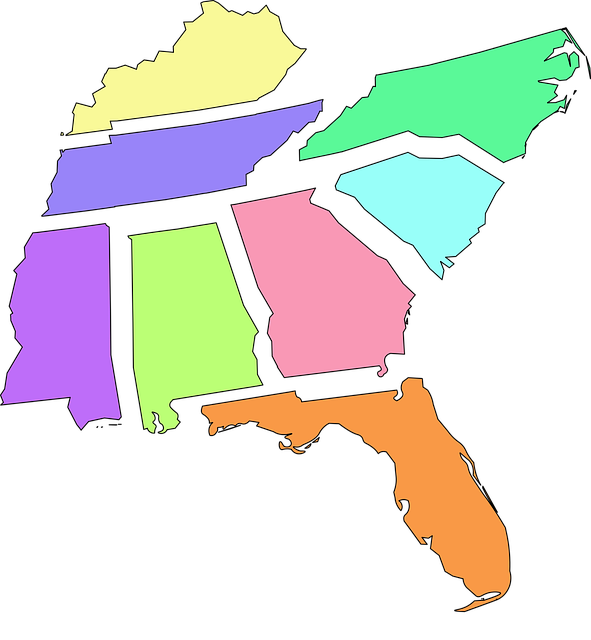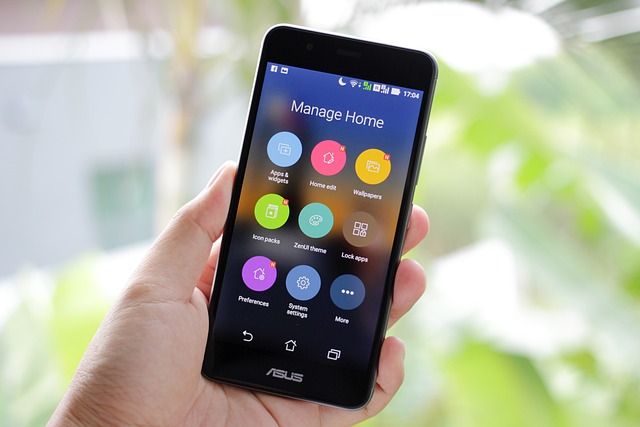In South Carolina, the Telephone Consumer Protection Act (TCPA) protects residents from unwanted automated calls (robocalls) and text messages unless they give explicit consent. Robocall lawyers or debt collector misdial law firms specialize in handling cases where entities make unauthorized or harassing calls, including wrong numbers. Consumers can take legal action for damages up to $500 per call under the TCPA and seek compensation or call cessation with the help of these attorneys. Proactive measures like registering on the National Do Not Call Registry and using call-blocking tools can reduce robocalls, while consulting a Robocall Lawyer SC is crucial for debt collector misdials.
In South Carolina, the Telephone Consumer Protection Act (TCPA) safeguards consumers from unwanted robocalls and aggressive debt collection practices. Understanding your rights under this federal law is crucial to navigating the growing issue of intrusive phone calls. This article guides you through the TCPA’s implications in SC, offering insights on when robocalls cross the line, legal actions against debt collectors targeting the wrong numbers, and how to choose a robust robocall lawyer or debt collector calling wrong number law firm in the state. Learn about filing complaints, seeking compensation, and preventing future nuisance calls with expert advice tailored for South Carolina residents.
- Understanding the Telephone Consumer Protection Act (TCPA) in South Carolina
- Your Rights Against Robocalls and Debt Collectors in SC
- When is a Robocall Considered a Violation of TCPA?
- Legal Actions Against Debt Collectors Calling Wrong Numbers
- Choosing the Right Robocall Lawyer or Firm in South Carolina
- The Process of Filing a Complaint Under TCPA
- Compensation and Damages for TCPA Violations
- Preventing Future Robocalls: Tips and Measures
Understanding the Telephone Consumer Protection Act (TCPA) in South Carolina
In South Carolina, the Telephone Consumer Protection Act (TCPA) plays a crucial role in safeguarding consumers from unwanted phone calls and text messages. This federal law, enforced by the Federal Communications Commission (FCC), prohibits certain types of automated telephone marketing, often referred to as robocalls, without prior explicit consent. Robocall Lawyer SC and debt collector calling wrong number law firms SC are increasingly in demand as citizens become more aware of their rights under this act.
The TCPA gives consumers the power to take action against entities making harassing or unauthorized calls. If you’re facing repeated robocalls or have been contacted by a debt collector who called the wrong number, consulting with a Robocall Attorney SC or a law firm specializing in debt collector calling wrong number cases is recommended. These legal professionals can guide you through your rights and options, ensuring that you receive fair treatment and protection under South Carolina’s consumer protection laws.
Your Rights Against Robocalls and Debt Collectors in SC
In South Carolina, both robocalls and debt collector calls that target the wrong number are regulated by state and federal laws designed to protect consumers. If you’re being bombarded with unwanted automated telephone marketing calls or experiencing repeated calls from debt collectors targeting the wrong number, you have rights. A Robocall Lawyer SC or robocall attorney SC can help you understand and enforce these protections.
Under the Telephone Consumer Protection Act (TCPA), it’s illegal for telemarketers to call telephone numbers in a manner that violates state law. This includes using automated dialing systems or prerecorded messages without prior express consent. If you’re receiving robocalls, despite not giving permission, you can file a complaint with the Federal Trade Commission (FTC) and seek legal action against the offending party. Similarly, if debt collectors are calling the wrong number, engaging in harassing behavior, or failing to verify your debt before contacting you, a debt collector calling wrong number law firm SC or lawyer for debt collector calling wrong number SC can help protect your rights under the Fair Debt Collection Practices Act (FDCPA).
When is a Robocall Considered a Violation of TCPA?
In South Carolina, a robocall is considered a violation of the Telephone Consumer Protection Act (TCPA) if it is made without proper consent or in disregard for specific exemptions. Robocall lawyers SC and attorneys specializing in TCPA cases often deal with instances where debt collectors or other telemarketers make automated calls to individuals who have not given explicit permission. This includes calling wrong numbers, a violation that can lead to significant legal repercussions.
Debt collector calling wrong number law firms SC and robocall lawyers SC are frequently consulted when such incidents occur. The TCPA grants consumers the right to sue for damages, including up to $500 per illegal call, which can accumulate if the violations are numerous or intentional. Individuals who feel they have been harmed by robocalls should consider reaching out to a qualified robocall attorney SC to understand their rights and explore potential legal actions against the offending parties.
Legal Actions Against Debt Collectors Calling Wrong Numbers
When a debt collector or their representatives make calls to individuals who are not the account holders, it’s a violation of the Telephone Consumer Protection Act (TCPA). This act grants consumers significant protections against unwanted phone marketing and robocalls. If you’ve been the recipient of such unauthorized calls, particularly if they persist despite your requests to stop, legal action may be warranted.
A Robocall Lawyer in South Carolina or a specialized debt collector calling wrong number law firm can guide you through the process of seeking compensation for these intrusive and often harassing phone calls. These professionals are well-versed in the TCPA and can help determine if the debt collector has engaged in unethical practices, such as using automated dialing systems to make calls without prior express consent. They can represent you in negotiations or, if necessary, take the case to court to enforce your rights under federal law.
Choosing the Right Robocall Lawyer or Firm in South Carolina
When looking for legal representation to enforce your Telephone Consumer Protection Act (TCPA) rights in South Carolina, choosing the right robocall lawyer or firm is crucial. Consider a law practice with a proven track record and specialized expertise in TCPA litigation. Look for attorneys who have successfully handled cases involving debt collector calling wrong numbers, as this demonstrates their understanding of the complexities involved.
Check client reviews, verify their experience at state bar associations, and assess their approach to handling such cases. You want a firm that is committed to protecting consumer rights and has the resources to take on powerful entities, ensuring you receive the compensation and relief you deserve for unwanted robocalls or debt collector misdials.
The Process of Filing a Complaint Under TCPA
When dealing with annoying or illegal robocalls in South Carolina, understanding the process to file a complaint under the Telephone Consumer Protection Act (TCPA) is crucial. If you believe a debt collector has been making calls to the wrong number, or if you’re facing excessive robocalls from telemarketers, there are legal options available to you. The first step is to gather evidence, such as call records and any recordings of the calls. This documentation is vital when presenting your case.
Next, contact a reputable robocall lawyer SC or debt collector calling wrong number law firm SC. These professionals specialize in TCPA litigation and can guide you through the filing process with the Federal Communications Commission (FCC) or relevant state agencies. They will help ensure your rights are protected and that you receive any compensation or cessation of calls you’re entitled to under the law. Don’t hesitate to reach out for assistance; many robocall attorneys SC offer free initial consultations to discuss your unique situation.
Compensation and Damages for TCPA Violations
When a consumer’s rights under the Telephone Consumer Protection Act (TCPA) are violated, they may be entitled to compensation and damages. Robocall lawyer SC or debt collector calling wrong number law firms SC can help clients recover these. If a business or collector makes automated calls to telephone numbers without prior express consent, it can result in substantial fines and penalties. Consumers can seek individual damages of up to $500 per violation, plus additional treble damages if the violation is willful or knowing. For many victims, especially those plagued by persistent robocalls, this can add up to significant financial relief.
In addition to monetary compensation, a lawyer for debt collector calling wrong number SC can assist in securing injunctive relief, which prevents the offending party from continuing the illegal practices. This is particularly important to stop ongoing harassment and protect future privacy rights. Robocall attorneys SC understand the complexities of TCPA litigation and can guide clients through the process, ensuring they receive the full extent of the damages they are entitled to under the law.
Preventing Future Robocalls: Tips and Measures
Preventing Future Robocalls: Tips and Measures
Robocall lawyers in South Carolina suggest several proactive steps to curb unwanted robocalls. The first line of defense involves registering your phone number on the National Do Not Call Registry, a federal database that restricts telemarketers from contacting registered numbers. This simple step can significantly reduce the volume of automated calls you receive. Additionally, installing call-blocking apps or using built-in filters in your smartphone can effectively block known robocallers. Regularly updating these lists ensures maximum protection.
For more robust protection against debt collector calling wrong numbers, consider hiring a robocall attorney in SC. These legal experts can guide you on taking formal action against persistent violators. They might suggest contacting your phone service provider for advanced call-blocking features or even pursuing legal avenues to hold telemarketers accountable. Remember, proactive measures are key; don’t hesitate to consult with a specialized law firm for comprehensive solutions.






